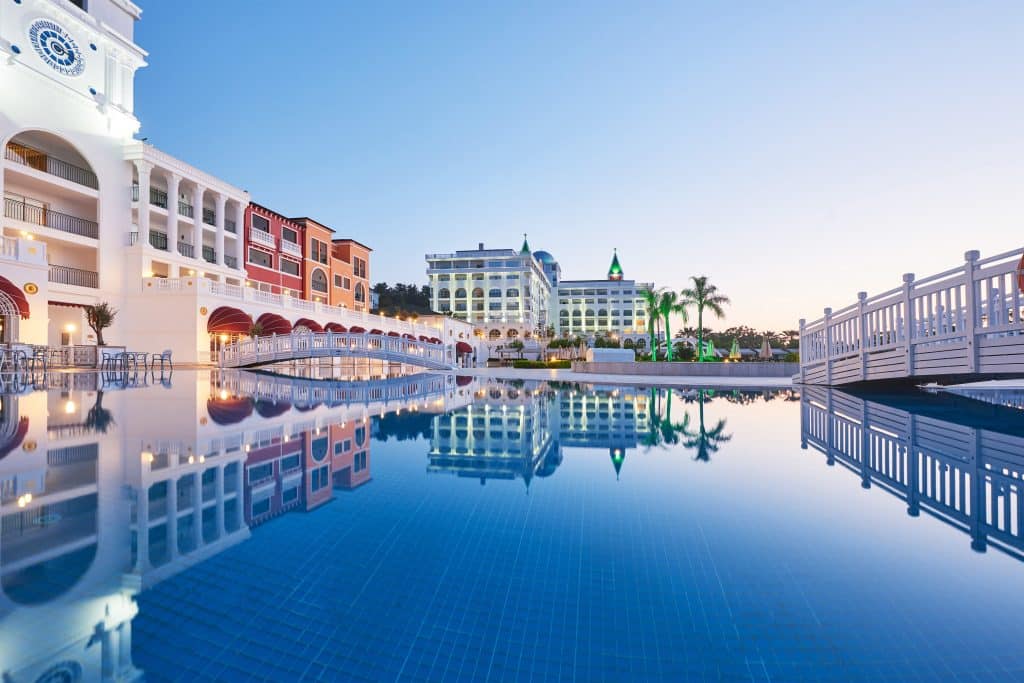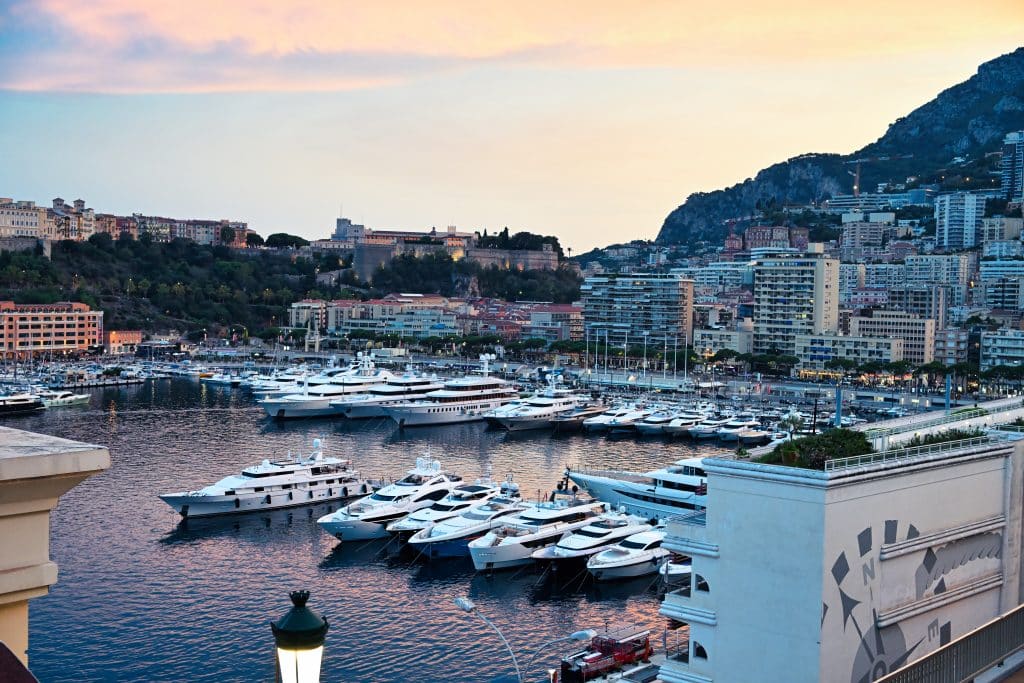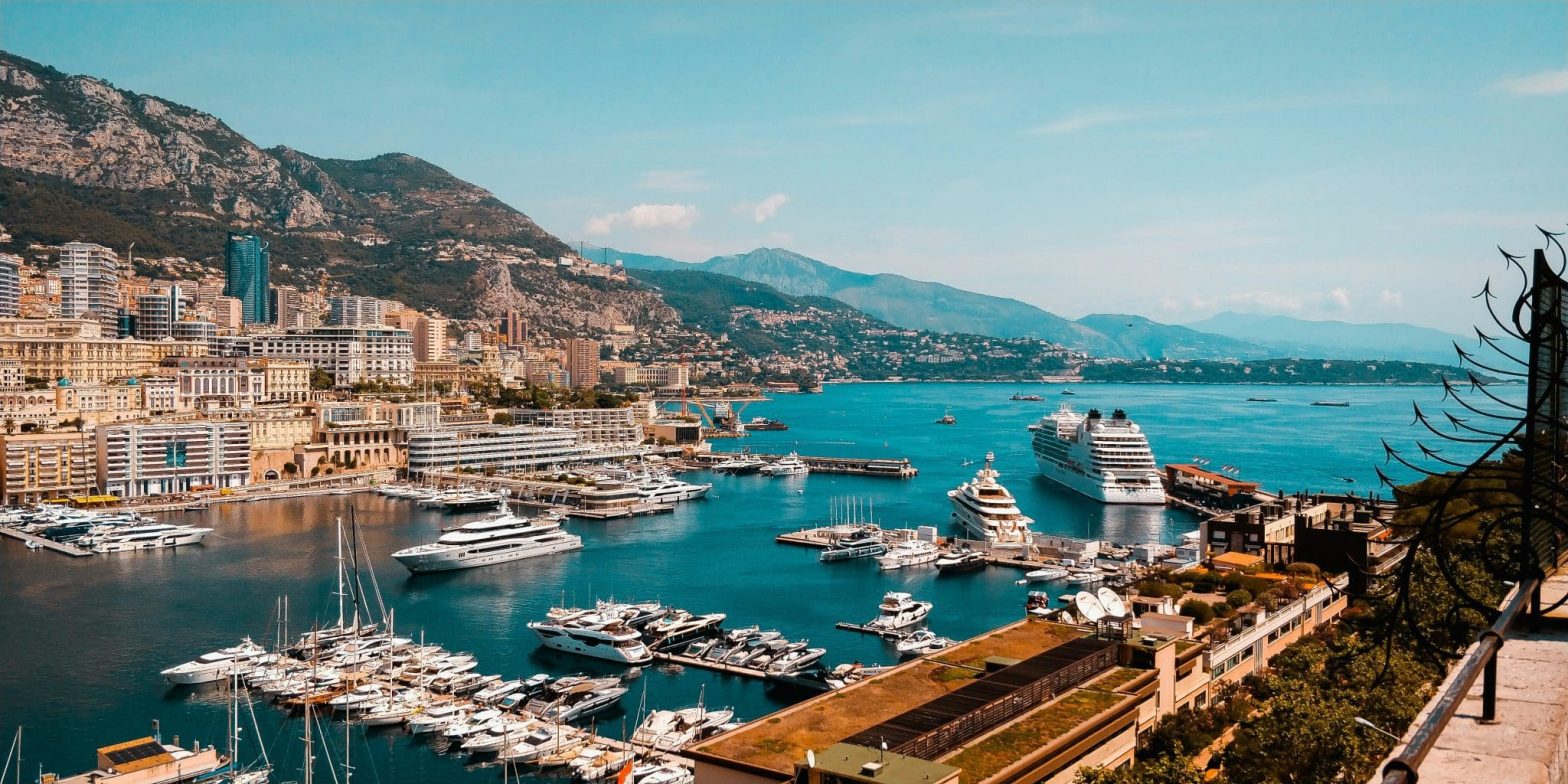Let’s face it, living in Monaco is a dream for many people. The exclusive lifestyle and unique living environment appeal to singles, couples and families alike.
But moving to Le Rocher requires some preparation: residence permit, administrative formalities, taxation, housing… Here is a comprehensive guide to help you prepare and, above all, make a success of your expatriation project in Monaco!
Living in Monaco: the pros and cons
Pros
- A unique lifestyle in the heart of the French Riviera, combining luxury, glamour and the gentle Mediterranean way of life
- A high level of security, with a crime rate lower than most EU countries
- No income tax for individuals!
- High-quality infrastructure, particularly in the health and transport sectors
- An ideal location on the French Riviera, not far by car or plane from major European cities
- Numerous annual events (Formula 1 Grand Prix, Monaco Yacht Show, etc.)
Cons
- Life in Monaco requires a substantial monthly budget
- The price per square metre is very high and rental properties can be scarce in certain sought-after neighbourhoods
- The principality is overcrowded, given that it covers an area of just 2 km² and has a population of 39,000
- Few job opportunities
Administrative procedures for moving to Monaco
Obtaining a residence permit
To live in Monaco for more than three months, you must apply for a residence permit. This applies to anyone over the age of 16.
Citizens of the European Economic Area (EEA) can apply without a visa, while citizens of third countries must first obtain a visa from the French authorities.
There are two ways to apply for a residence permit:
- Online: go to the official website of the Principality of Monaco and click on ‘Apply for a residence permit’ at the following link: https://teleservice.gouv.mc/premiere-carte-de-sejour/?international=en.
- Paper application: send your application by post to the Public Safety Department, or drop it off in person after making an appointment.
In all cases, the application must include the following documents:
- Proof of residence in Monaco (notarised document, lease, electricity bill, etc.)
- Proof of sufficient financial resources (employment certificate, bank statement, proof of pension, etc.)
- A valid passport or French residence permit
- A birth certificate
- Extract from your criminal record
- A marriage certificate (if you are married)
We therefore advise you to start gathering these documents and find accommodation in Monaco if you do not already have any.
Opening a bank account in Monaco
Once you have your residence permit, you are officially a resident and can open a bank account with a bank in Monaco. This is mandatory for professionals.
The bank details you receive will enable you to:
- Take out a Monaco Telecom subscription;
- Sign up for electricity and gas;
- Register with the Monaco social security system.
Finding accommodation in Monaco
Monaco’s neighbourhoods
Monaco is divided into around ten neighbourhoods, the main ones being: Monte-Carlo, Monaco-Ville (the historic district), Fontvieille, La Condamine, Larvotto, Les Moneghetti, Jardin Exotique and Saint-Roman (or ‘La Rousse’).
Larvotto, Saint-Roman and Jardin Exotique are among the most residential neighbourhoods for living alone or with a family.
Monte-Carlo, with its casino, prestigious hotels and luxury boutiques, offers a more unique lifestyle. The neighbourhood is generally chosen by people living alone or as a couple, looking for an area that is both luxurious and lively, with a large tourist population.

Your housing budget in Monaco
Monaco has the most expensive housing in the world, as the country’s small size limits the amount of land available, which drives up prices.
- For a studio in the city centre, you can expect to pay an average of €6,200 per month.
- For a three-bedroom apartment, the monthly budget is around €17,000.
- Finally, if you want to buy a property, the average price per square metre in Monaco is €54,000.
It should be noted that some neighbourhoods, such as Le Larvotto and Monte-Carlo, are more expensive than others.
The cost of living in Monaco for expats
According to the latest figures from Numbeo, a single person needs an average budget of €7,800 to live in Monaco. This amount rises to over €23,000 for a family of four.
These estimates include the main items of expenditure, namely rent, groceries, healthcare, transport, education and leisure.
And if you exclude rent, the cost of living drops dramatically! A single person will then need €1,800 per month, meaning that housing can account for up to 70% of the monthly budget in Monaco.
Check out our comprehensive guide to the cost of living in Monaco to find out more.
What is the minimum wage in Monaco?
The average gross monthly salary in Monaco is around €4,900. This income may be sufficient for a single person, unless they own their own home or have affordable rent, which significantly reduces the cost of living.
However, most expats generally hold senior positions or run their own businesses, which allows them to earn much higher incomes.
Cost of living compared to other European countries
Monaco is considered the most expensive country in the world! The figures speak for themselves:
Compared to France
Life in Monaco is around 78% more expensive than in France. All French cities are less expensive than Monaco’s neighbourhoods, even Paris compared to Monte Carlo.
Compared to Switzerland
Switzerland is – surprisingly – 58% less expensive than Monaco. That said, apart from housing, most everyday expenses (such as healthcare and food) are higher in Switzerland.
Compared to Germany
The cost of living in Germany is three times lower than in Monaco. However, the average salary is also lower, at €2,900 compared to €4,900.
Compared to the United Kingdom
Living in Monaco costs up to 300% more than in the cost in United Kingdom. However, when comparing Monaco to London, the difference is reduced to around 50%.
But bear in mind that in all these countries, salaries are often more in line with the cost of living. Purchasing power is therefore generally higher than in Monaco.
Working in Monaco
The job market in Monaco is relatively dynamic, particularly in the finance, luxury, tourism and service sectors. The tech sector is also growing.
Most expats are often bilingual or multilingual, have good experience in their field and generally hold senior positions.
It is also very common to see French or Italian people living in their country of origin and commuting to Monaco every day for work.
The tax system
The tax system in Monaco is undoubtedly one of the main advantages of living in Monaco. There is no income tax for individuals. This means there is no wealth tax or property tax.
The only tax is the ISB (business income tax), which is applied to companies that generate more than 25% of their turnover outside Monaco, as well as VAT.
Getting around Monaco
The Principality offers a modern, innovative and, above all, eco-friendly public transport network.
Firstly, there are electric and biofuel-powered buses operated by the Compagnie des Autobus de Monaco (CAM), as well as Taxi Monaco taxis, some of which are electric. These provide transport within the city, but also connect Monaco to other destinations on the French Riviera. For added convenience, we recommend downloading the dedicated mobile app: https://taximonaco.mc/en
It is also possible to get around Monaco in electric vehicles, which can be rented by the hour or by the day through the Mobee car-sharing service. To access this service, simply download the official app: https://www.mobee.mc/en/download-application

The same system exists for electric bikes, via the MonaBike service.
Finally, boat trips are also available, notably thanks to the water bus, which connects the Rock to Monte-Carlo!
The Monapass app for everyday life
Monaco has launched Monapass, a mobile app designed to make everyday life easier for residents of the Principality.
With this app, expats can:
- Buy transport tickets or CAM season tickets and track routes and timetables;
- Access the MonaBike service;
- Pay for activity tickets (admission to the Oceanographic Museum, the Beaux-Arts cinema, etc.);
- Buy tickets or season tickets for AS Monaco football matches.
Your children’s education
Children benefit from a good education system, based on both public and private schools.
In the public sector, the Lycée Albert Ier offers a comprehensive education in French and is highly regarded in the country.
Several private secondary schools are also available, including:
- The International School of Monaco
- The British School of Monaco
Parents can also enrol their children at the AS Monaco Academy (which combines academic education and football training) or the Princess Grace Dance Academy.
Healthcare in Monaco
Monaco’s healthcare system is recognised as one of the best in the world. It is a priority for the Prince’s Government, which allocates 8% of its annual budget to healthcare.
The care provided is of a high standard and delivered in ultra-modern facilities. There are four main hospitals:
- The Princess Grace Hospital Centre (CHPG), which also houses the country’s main maternity hospital;
- The Monegasque Institute of Sports Medicine and Surgery;
- The Monaco Cardio-Thoracic Centre;
- The Private Haemodialysis Centre.
All residents are covered by public health insurance, which covers part of the cost of medical care.
However, for comprehensive coverage, expatriates often opt for international private health insurance, such as that offered by Foyer Global Health. This offers several advantages, including the following:
- Valid worldwide
- Rapid access to quality care
- Repatriation coverage
- Reimbursement for routine care, including dental and eye care
- Access to wellness services, including a ‘Get Fit’ fitness programme and mental health coaching (let’s face it, expatriation can sometimes be emotionally intense!).
